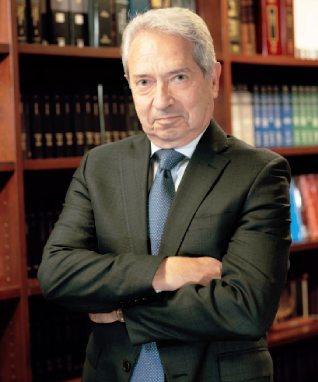The size, weight, and speed of commercial trucks make these vehicles deadly if they are involved in an accident. This is one reason that a unique set of regulations apply to truck driving. These rules, put forth by the Federal Motor Carrier Safety Administration (FMCSA), regulate both truck drivers and their employers. One rule requires the use of a log book to document a driver’s activity.
After an accident, log books are often examined to uncover evidence of negligence. It’s no wonder, then, that truck drivers and their employers sometimes falsify these records to hide such evidence. If you’ve been involved in a truck accident, you will need dedicated legal counsel. Count on Miller, Montiel & Strano, P.C.
Why log books are required
Truck drivers are on the road for a significant amount of time, covering many miles as they transport goods. Because of the size and weight of their vehicles, combined with other factors like speed, an accident involving a truck could have deadly consequences compared to an accident involving a passenger vehicle.
The FMCSA recognizes this increased risk, and also understands that a truck driver could be susceptible to numerous types of irresponsible behavior while behind the wheel. One prime example of such conduct is driver exhaustion due to failure to take required breaks from long hours on the road.
The log book exists to discourage and hopefully prevent such behavior. It is used to document the driver’s activities, such as the amount of time driving versus how much time is spent resting in a sleeper berth. This information must be recorded in the log book because the FMCSA limits the number of hours a driver can be on the road before needing to take a break. The log book therefore aids in compliance purposes.
Why log book fraud happens
Violations uncovered in the log book are serious. They could result in fines to the driver or trucking company, revocation of a truck driver’s license, and other penalties. Unfortunately, this creates a temptation to falsify the log book.
It’s not uncommon for trucking companies to pressure their drivers to manipulate log book information under threat of losing their jobs. Often, this is done to permit the driver to violate FMCSA regulations by driving longer hours. More driving translates to higher profits and higher pay for drivers (since they are often paid by the mile). But doing so puts the public at risk of a truck driving accident.
A driver or company may create “clean” logs to cover up FMCSA violations and thereby hide evidence of negligent conduct. What this amounts to is destroying evidence. But how does an attorney uncover proof of this?
Demonstrating log book fraud
One of the first things a truck accident attorney will do is review the driver’s log book. To be sure, it is difficult to prove these records have been falsified. But it is not impossible. Your attorney can use the discovery process to uncover other evidence that will either contradict or corroborate what’s in the log book. For example, receipts of purchases made at truck stops and cell phone data can place a driver at a specific location at a specific time. Your attorney will work to find this and other relevant evidence of negligence.
Fighting For the Rights of Truck Accident Victims
If it turns out the log book data was fabricated, this fact will go a long way in demonstrating negligence. Having the right law firm behind you will make all the difference in how your accident case turns out. If you or a loved one have been injured, contact the personal injury team at Miller, Montiel & Strano, P.C.

